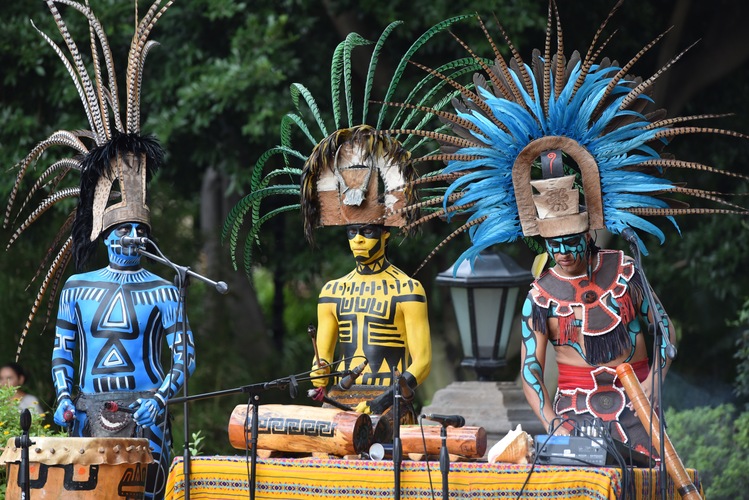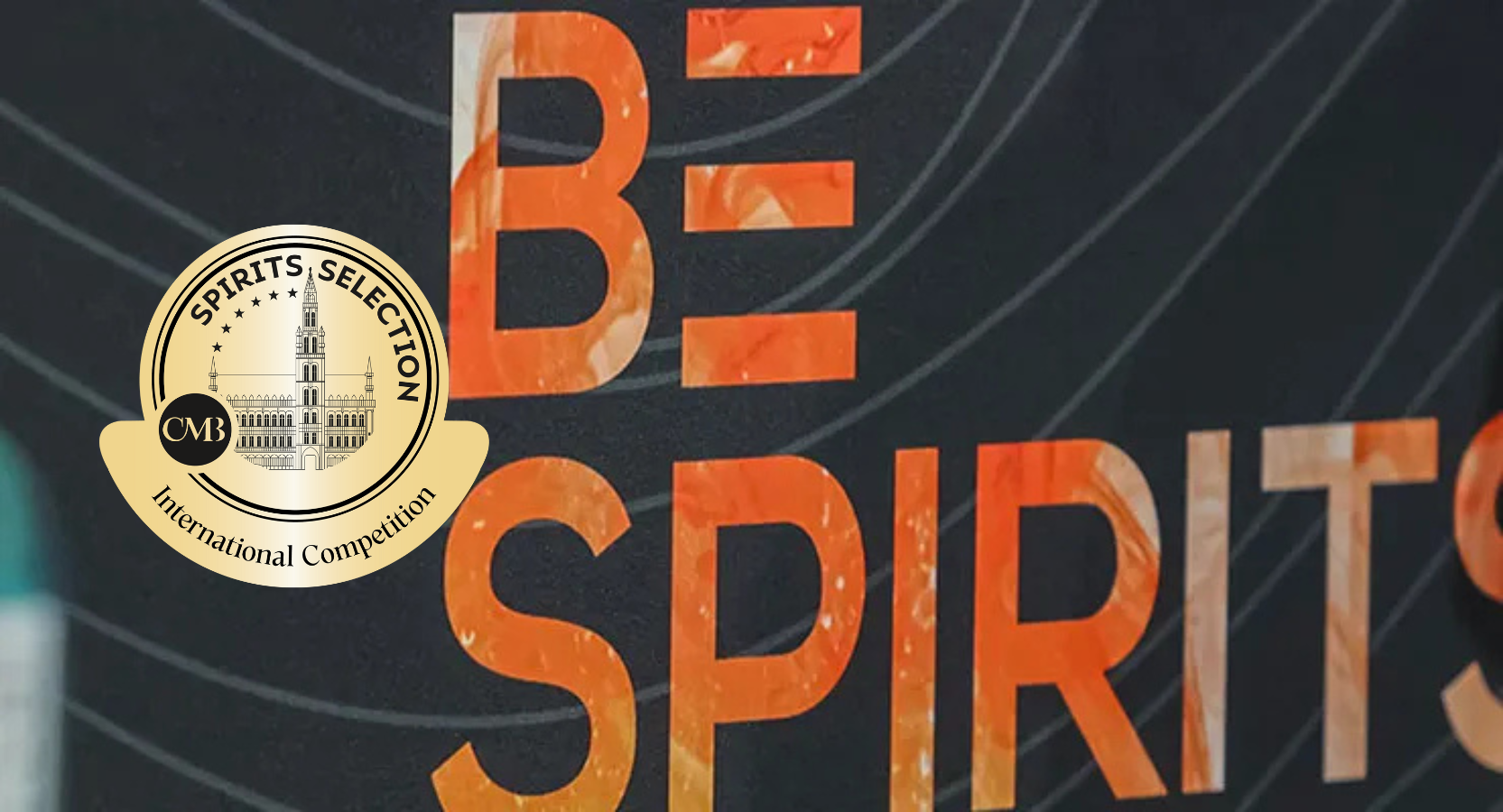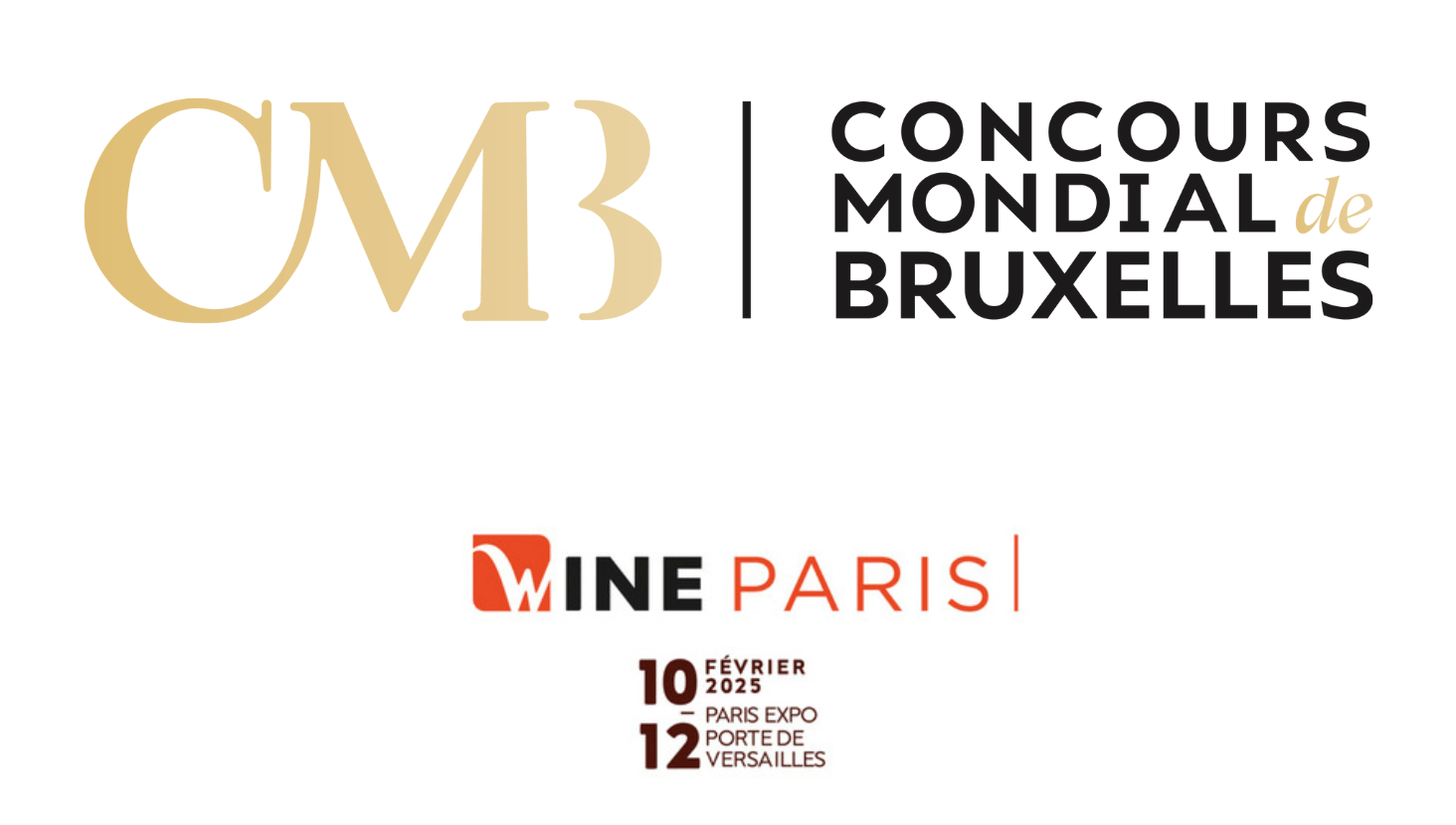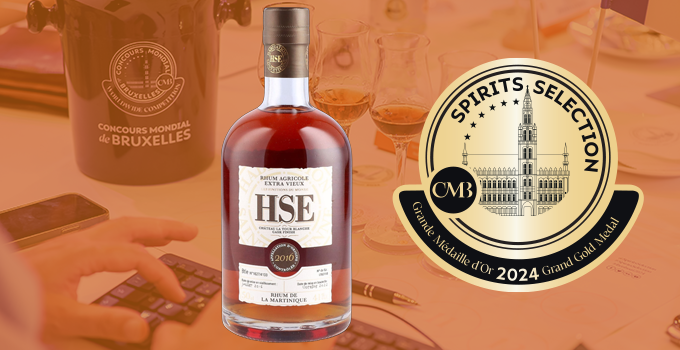Specificities of the Spirits Selection
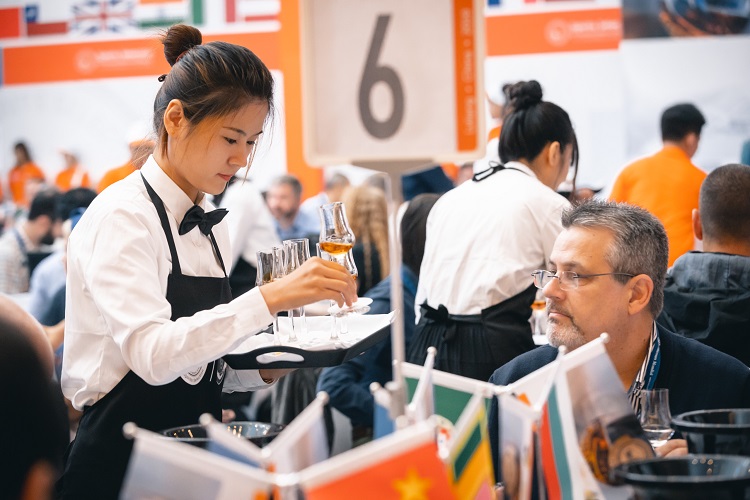
In the world of spirits, few things are as ubiquitous as competitions… more and more every year and I can only imagine how difficult it must be for producers and consumers alike to decide which competition or results to endorse. As more and more golden stickers are adorning bottles, are they losing their values? What makes the Spirits Selection so different? I decided to dive deeper and ask Thierry Heins – the director of the competition- about the fundamental differences between the Spirits Selection and other competitions.
Ulric Nijs: As the 21st Spirits Selection approaches despite the many difficulties that the year 2020 has brough us, would you be able to highlight what, according to you, makes Spirits Selection unique?
Thierry Heins: First and foremost, the obvious one! It is the only spirits competition which is travelling to another country every year.
UN: Exactly… But why is that?
TH: One of the objectives of the Spirits Selection by Concours Mondial du Bruxelles is to introduce our judges to new spirits regions and to authentic native spirits. The aim is to mediatize the host region and its national spirits production. The past editions were held in Brazil (2014) where the judges had the chance to discover the cachaça category, in 2015 and 2019 it was the turn of China and the mammoth baijiu category (35% of the world spirits production), then in 2016, Mexico with tequila, Chile in 2017 with a focus on their pisco, Bulgaria in 2018 and its tradition of making fruit spirits (Rakiya)
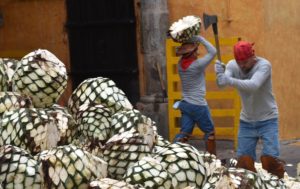

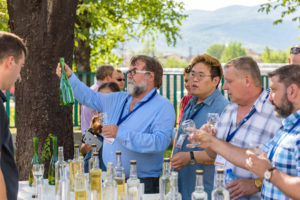

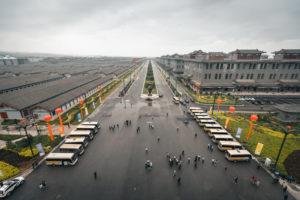
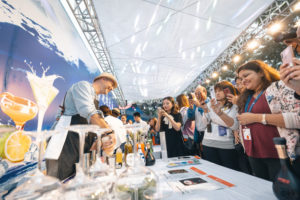
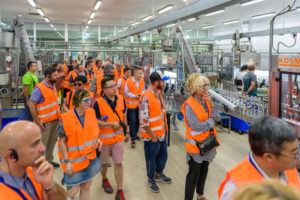
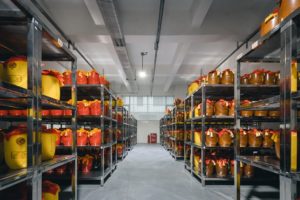
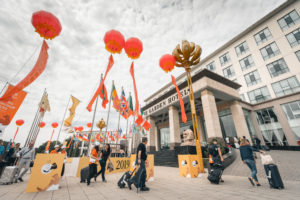
The 2020 edition was due to be held in Colombia, in the city of Baranquilla, but with Covid-19, we have decided to relocate the competition to Brussels. This will allow us to ensure the best tasting conditions while following new social distancing guidelines imposed by Covid-19.
UN: So it is educational as well?
TH: Yes, during the typical four-day program of the competition, our tasters are offered the opportunities to learn about the origins, traditions and productions of the host country spirits, to visit local distilleries and to talk to local producers, giving a unique first-hand outlook into the biggest spirits categories of the world.
UN: Asides from the itinerant aspect of the competition, what else sets you apart?
TH: The international aspect of the competition is not limited to the destinations, but as well to the vast range of categories submitted per year; from Baijius to Singanis, we asses them all every year.
For instance, I think that we are the only competition that gathers so many baijius. You cannot pretend to be an international competition if you ignore this group of products. It is a huge and diverse category; it counts for 35% of the world spirits production. Last year, we had more than 600 baijius samples registered. Historically, this category has always been well represented in our competition.
UN: Baijiu seems to play a particularly important role in the Spirits Selection…
TH: Some of our regular judges are today much more familiar with baijius than they were a few years back, simply because we organize masterclasses for our judges to improve their skill within specific categories, normally in relation with the industry of the host country, and we have been twice in China.
UN: So, is Baijiu the most important group within the samples submitted?
TH: Our main categories in terms of number of samples are rums, baijius, Fruit eaux de vie and liqueurs.
UN: An itinerant spirits competition with a truly international pedigree… What about the judges and tasters, where do you find experts for each group of spirits?
TH: The Concours Mondial de Bruxelles is unique in that it presents judges from across the globe: The tasters are spread in jury panels of 6 judges, under the authority of a chairman. Our jury panels are composed of spirits experts from different nationalities and with different backgrounds. In 2019, jury members were drawn from 28 different nationalities.
But more importantly, spirits of a specific category are not only assessed by its expert. This makes the results globally more acceptable. Let us say for example that rums were assessed only by rum experts, the results would always be similar and only appeal to rum experts rather than the generic consumers. And lastly, you will always find the same “specialists” in every competition, thus forming a rather closed circle: Experts catering for Experts. Unfortunately, it happens more often than one may expect.
There are spirits professionals in every country in the world and it is important that they have a say… I think that this way of doing things makes the results closer to what uninformed consumers are looking for. This contest is organized primarily for consumers, and judges try to put themselves in their shoes.
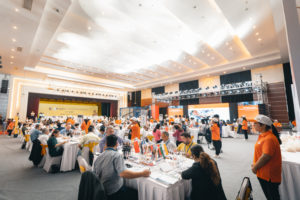
UN: Make sense… but no one is an expert in every group?
TH: We thought about this: The huge array of spirits available makes comparative tastings complex. It is impossible for a taster to be fully proficient in every category, some of them require a lifetime to gain an in-depth understanding. We are always learning and improving our skills.
UN: Exactly, how do you work around this problem?
TH: The rules that underpin the evaluation of each spirit are pretty much universal: Judges always seek balance! For instance, balance between wood and flavors, balance between sweetness and bitterness… It is always this search for balance and overall organoleptic harmony that guides our judges.
UN: But what about typicity, a-typicity and flaws? For instance, some “flaws” for western judges could be considered as assets by eastern judges. I am sure it gets tricky.
TH: To help the judges who are less familiar with a specific category, one of our regular judges, Paul Peng Wang -a well know spirit writer in Taiwan- suggested that we develop “Spirits Sensory Guidelines” as a reference tool for judges facing unfamiliar categories. Mr Wang, took the initiative and started writing these guidelines with the help of other jury members. We make these available to each member of the jury and every year based on judges’ feedback and suggestions, we update these guidelines to be as accurate as possible.
Bear in mind that these guidelines are not a tasting bible: as I said before, the most important part is the overall balance, impression, identity, character, and drinkability. But I can also tell you that for baijius, these guidelines are extremely helpful!
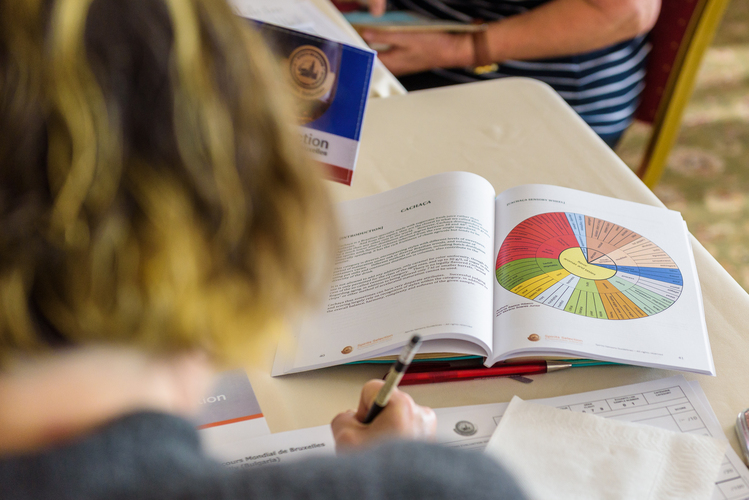


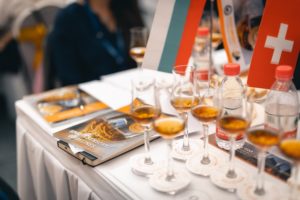

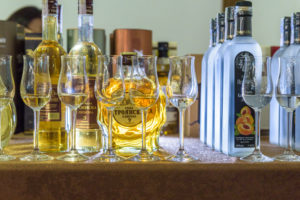
UN: One of the main objectives of the SS is to create a reliable quality seal for consumers and producers, how to achieve this?
TH: In an extremely competitive marketplace, consumers are left totally baffled by the daunting array of commercially available products. Choosing a spirit from the countless products lining stores shelves can be daunting to say the least. The stickers of the SS provide reassurance especially for those who have not had previous experience with the spirit or the brand.
Our competition is fair, and the judging process is also very stringent; we do not assess more than 35 samples per day; every assessment is blind and in optimal tasting conditions and every assessment is silent! Only in case of major discrepancies are the results discussed within the group.
UN: Do you have a specific tasting procedure?
TH: Obviously, the spirits are tasted blind and we will ask the tasters to judge them by sight, smell, and taste, and to give their overall impression. I repeat, our judges do not assess more than 35 samples a day, of 3 to 4 flights corresponding to different spirits categories. I am scared when I see that in some competitions, they must judge 80 to 100 vodka a day! As a producer, I would not like to be the sample N° 80 or 100.
Our judges receive a tasting sheet for every sample, the samples are presented in a decreasing order of vintages, increasing order of ABV and sugar content. We ask our judges to give a score for every criterion and to write their observations.
Lastly, we score the sample not with a simple mean score but rather with a Winsorized mean score. That is, we replace the smallest and largest values with the observations closest to them. This is important as it prevents the dominance of any one person in the jury panel.
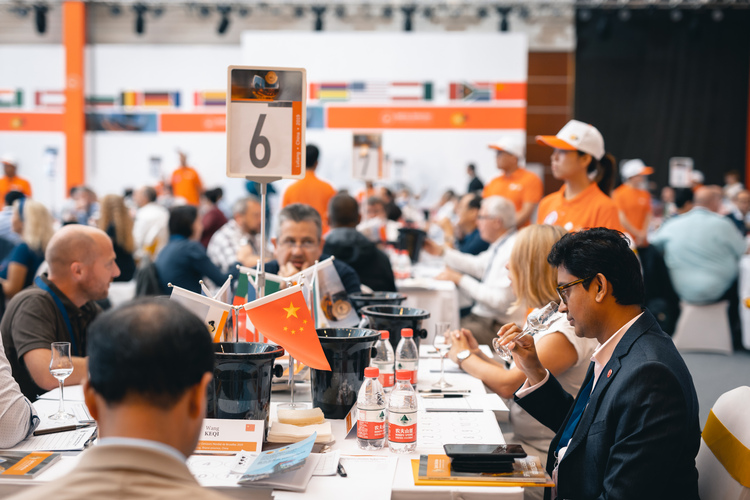
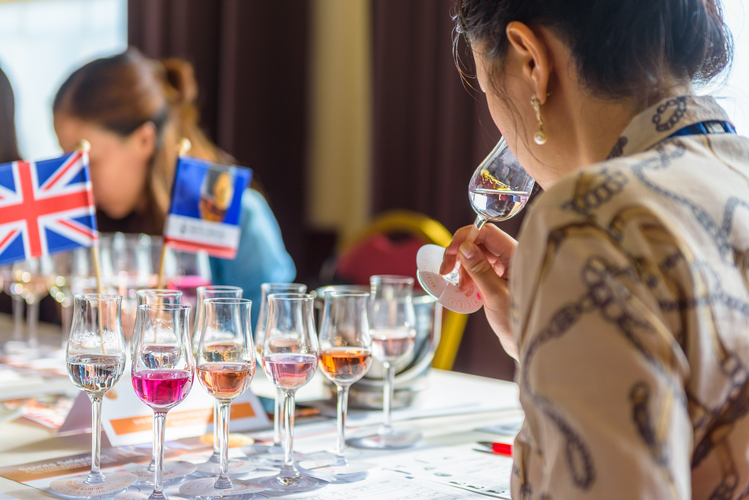


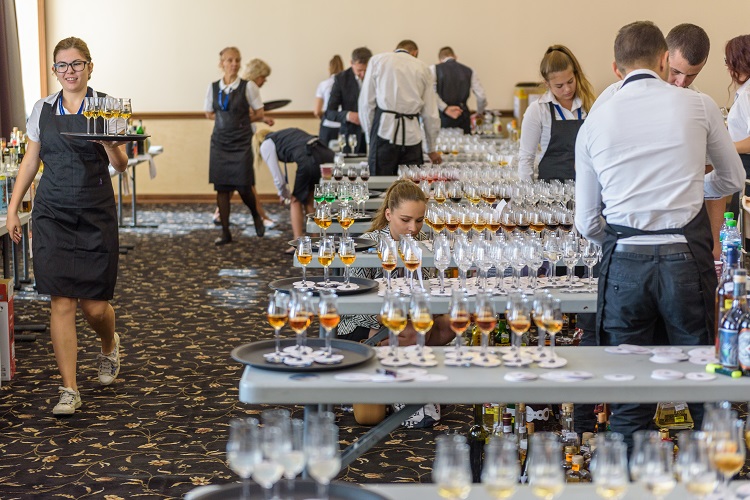
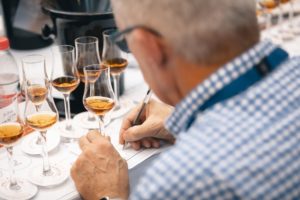
UN: The medals are therefore awarded purely based on an arithmetic score?
TH: Yes, but very importantly, only 30% of our registered samples receive medals! There will be a process of elimination to ensure that this goal is respected. It does not mean that other products are of bad quality, but we want to highlight the best of best products! Does it make sense to organize a competition with an award rate of 60 to 90%? Or even with a bronze medal?
UN: Any other points to be highlighted in the judging process?
TH: Many producers are asking for some feedback, whatever the results. We are here to provide this service to the producers. We want to explain them why the jury panel liked or disliked their product; what were the organoleptic hits or misses. Every product is entitled to receive an official tasting feedback with tasting notes and impressions, how big was the tasting pool and other statistical values so the producers can benchmark their product against their respective categories. This can be enormously beneficial especially to newer brands.
UN: I read that the Spirits Selection conduct regular checks on award-spirits entries. Can you expand on this and explain why?
TH: We regularly checks on award-spirits entries after the competition to ensure that the right products are communicating their respective awards. We do so by keeping all awarded products in house and comparing them with an anonymously bought sample from the same batch with the award stickers. The products undergo both an organoleptic and scientific assessments with a COFRAC-approved laboratory. The checks are designed to ensure consumers the highest level of satisfaction from spirits endorsed by a ’Concours Mondial de Bruxelles’ award and that there are no fraud with the awards, as these can be quite a powerful marketing tool!
UN: It seems a bit extreme?
TH: As I said, our medals are a powerful marking tool… luckily, we have not had any issues with spirits, but some less scrupulous wine producers have tried to take advantage of previous results.
UN: Any last words?
TH: Yes, some fine prints! From its advent, the Concours Mondial de Bruxelles has always been recognized by the European Union as an official organization with the power to award medals to wines and spirits and we are thus controlled by the Belgian ministry of economy.
As you already know, this year has been relocated to Belgium, but we have expanded our registration deadline to the 30th of September 2020. I would invite all producers to visit our website (www.spiritsselection.com) for more info on this year event or contact their regional ambassadors!




